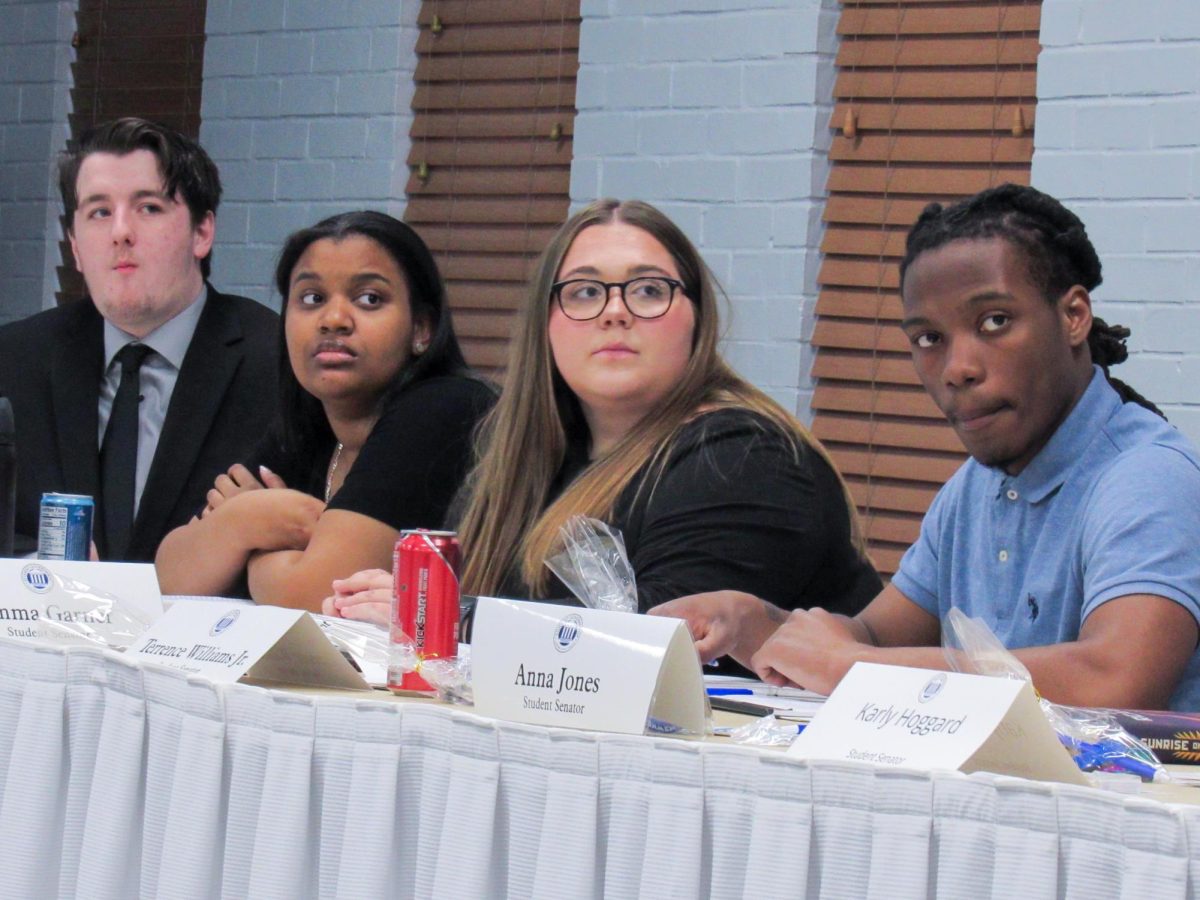Column: Media to America: Perception is reality TV
As I’m sure you’re aware, every month we elitist members of the liberal media meet up to talk about how we plan to spin the news cycle to screw middle-America, further the gay agenda and generally erode American values.
But this month’s meeting was different. Instead of the usual pedantic, witty banter, an awkward silence settled quickly over the crowd. No one wanted to talk about the elephant in the room-or, at least he claimed to be an elephant. Nobody had ever met an elephant with hair like that, or one who talked so damn crazy.
Donald Trump puts liberal journalists in an awkward spot. As Democrats, we see Trump as a blessing. A new poll released by Public Policy Polling shows that Americans are beginning to seriously regret jumping into bed with the GOP. If congressional elections were held today, 46 percent of voters would vote Democratic, as opposed to 41 percent who would vote Republican. Elections are won by the party who wins the most independent voters, and the poll found 44 percent of independents favor Democrats, while only 30 percent favor Republicans.
Independents are being scared away by the GOP’s base, who we used to call the fringe before they took over the party, and by its big-wigs who seem quite content to stoke rabid, racist conspiracy theories. Trump’s recent publicity stunt and his cranial accessories don’t actually make him a GOP big-wig, but the media is happy to treat him as such because it increasingly sees itself as an arbiter of entertainment instead of information. And Democrats are happy to see Trump convince independents to tell Republicans they’re fired in the next election.
But this is a moment when we have to let journalism get in the way of our politics.
We are playing with fire. Now more than ever, journalists must dedicate themselves to reporting newsworthy facts.
A lot has been made of the Internet’s affect on journalism, but this conversation is almost always one of profitability. Young journalists are often posed the question, “How can traditional journalism stay relevant in the age of free information and citizen journalism?”
The Internet makes traditional journalism more necessary and relevant than ever. It has facilitated the exchange of ideas and given voice to billions of people, and the world is far better for it. But it comes at a destructive, reductive price.
Vast communities exist online that perpetuate vile conspiracy theories, and the open-source nature of the medium allows half-truths, outright lies and paranoid delusions to be compiled into a convincing package.
The Internet puts all ideas on equal footing, and that is mostly a beautiful, educational, democratic force for good. But because no one is responsible for the claims they make, because no source has to be verified and no organization held accountable, it is also a force for manipulation.
This is what journalists are trained to combat. It is our job to let people know when and why they can trust things and when they are being manipulated.
In the past month, we have failed miserably. We’ve become willing participants in a circus act and given voice to a deranged hack, as if he is driven by some purpose beyond his own ego.
Because the media gave Trump a platform for his venomous rhetoric, the first black president in our nation’s history had to call a press conference to release his full birth certificate.
The root of Birtherism is racism, plain and simple. It comes from a belief that there is something illegal about our black president, that his presidency is un-American.
We should be ashamed of ourselves, as journalists and as Americans, that we pretended the idea was anything more than manifest bigotry.
At next month’s meeting, in between the arugula salad and the toast to abortion, I might mention to my comrades how I think we should have covered this.
Birtherism is a symptom of two major diseases rotting through the underbelly of our society. Racism is alive and well in America, and we must not let it disguise itself as anything more dignified.
Conspiracy theories are one of the fastest growing commodities in the marketplace of ideas. The Internet is a place where people can isolate themselves among those who confirm their notions and never challenge them. Millions of people use the Internet to construct a vision of the world with little basis in factual reality, and we ignore this growing presence at our peril.
Democrats should believe their ideas are strong enough to win the argument without Trump in the picture.
But as journalists, this should be a clarion call. America needs people who are dedicated to sifting fact from fiction.
If journalism has any purpose, it is to defend the public from mountebanks like Trump and the thinly veiled racism of his claims.
If the media feels it must cover Trump and ignore the many meaningful issues Americans should be thinking about, it should do it in a way that furthers insight into the roots of our problems.
We should report reality, not reality TV.
Dave Balson is a junior journalism major. He can be reached at 581-2812











![[Thumbnail Edition] Junior right-handed Pitcher Lukas Touma catches at the game against Bradley University Tuesday](https://www.dailyeasternnews.com/wp-content/uploads/2025/03/MBSN_14_O-e1743293284377-1200x670.jpg)

![[Thumbnail Edition] Eastern Illinois University baseball senior utility player Tyler Castro fields a ground ball during the team's first intrasquad scrimmage of the season on Jan. 31.](https://www.dailyeasternnews.com/wp-content/uploads/2025/03/BB_01_O-e1742874760130-1-e1742907504722-1200x911.jpg)
![[Thumbnail Edition] Senior Foward Macy McGlone, getsw the ball and gets the point during the first half of the game aginst Western Illinois University,, Eastern Illinois University Lost to Western Illinois University Thursday March 6 20205, 78-75 EIU lost making it the end of their season](https://www.dailyeasternnews.com/wp-content/uploads/2025/03/WBB_OVC_03_O-1-e1743361637111-1200x614.jpg)





































![The Weeklings lead guitarist John Merjave [Left] and guitarist Bob Burger [Right] perform "I Am the Walrus" at The Weeklings Beatles Bash concert in the Dvorak Concert Hall on Saturday.](https://www.dailyeasternnews.com/wp-content/uploads/2025/03/WL_01_O-1200x900.jpg)
![The team listens as its captain Patience Cox [Number 25] lectures to them about what's appropriate to talk about through practice during "The Wolves" on Thursday, March 6, in the Black Box Theatre in the Doudna Fine Arts Center in Charleston, Ill.](https://www.dailyeasternnews.com/wp-content/uploads/2025/03/WolvesPre-12-1200x800.jpg)














